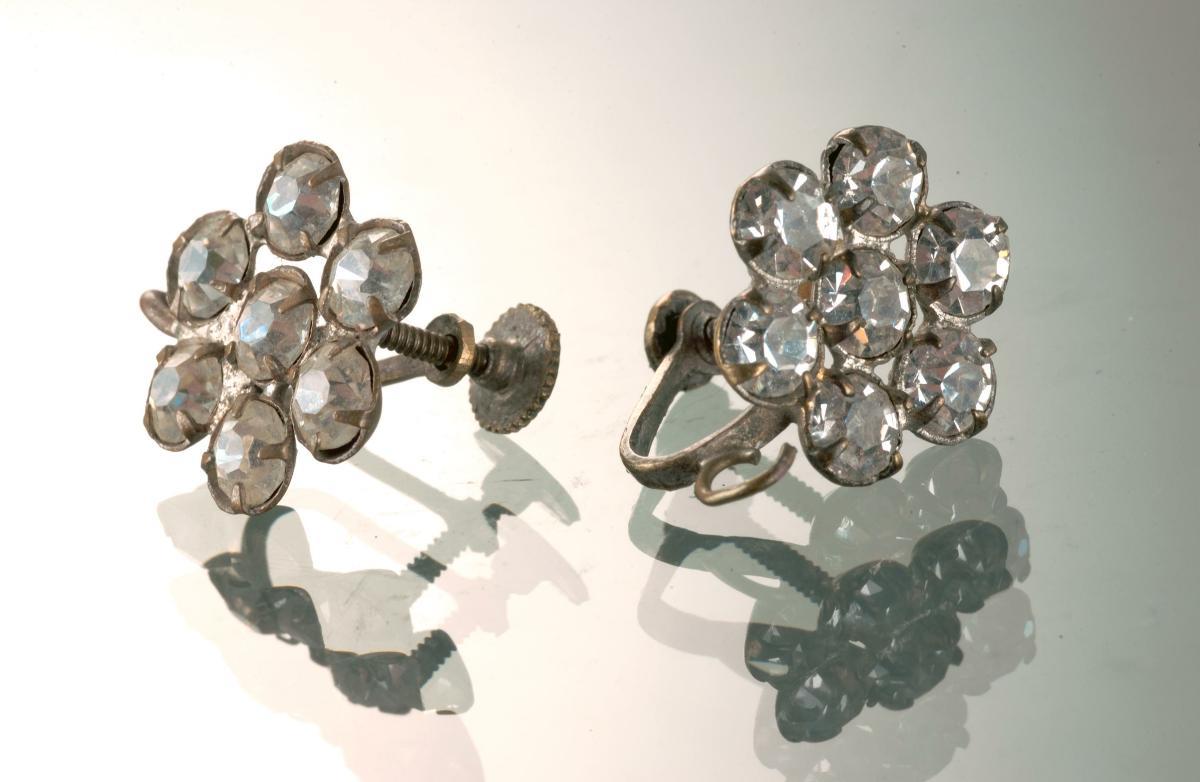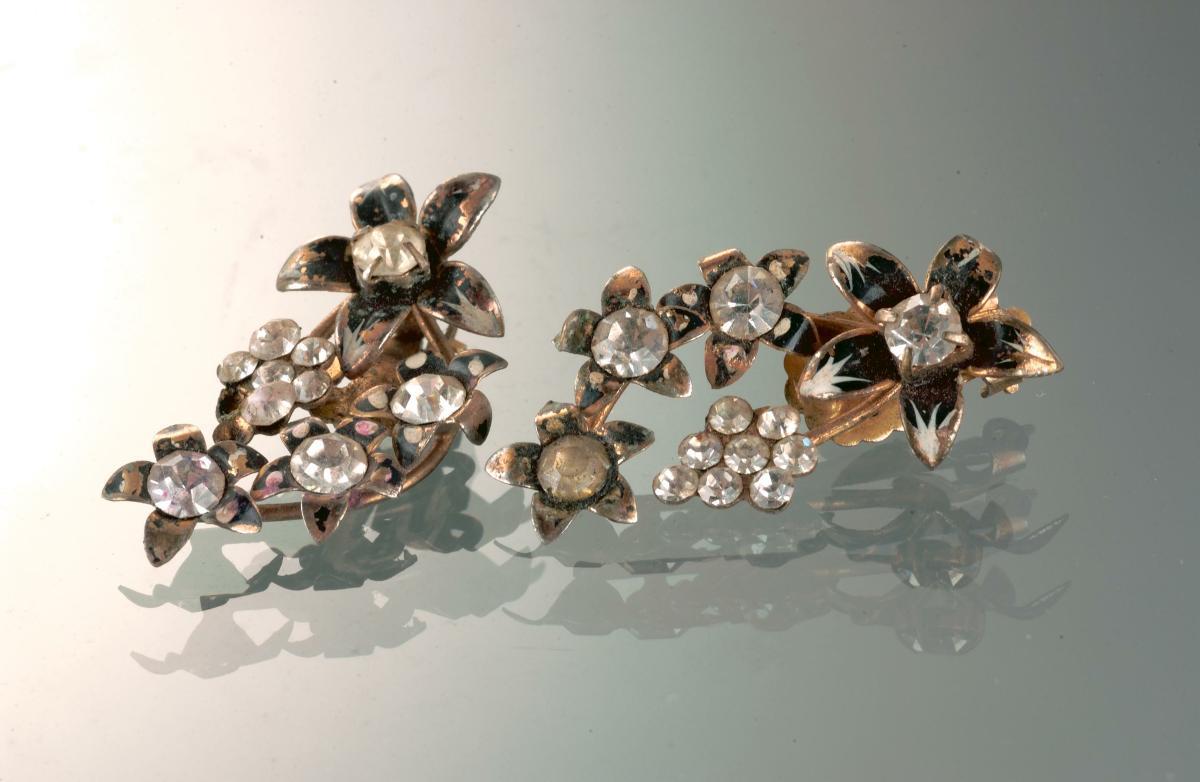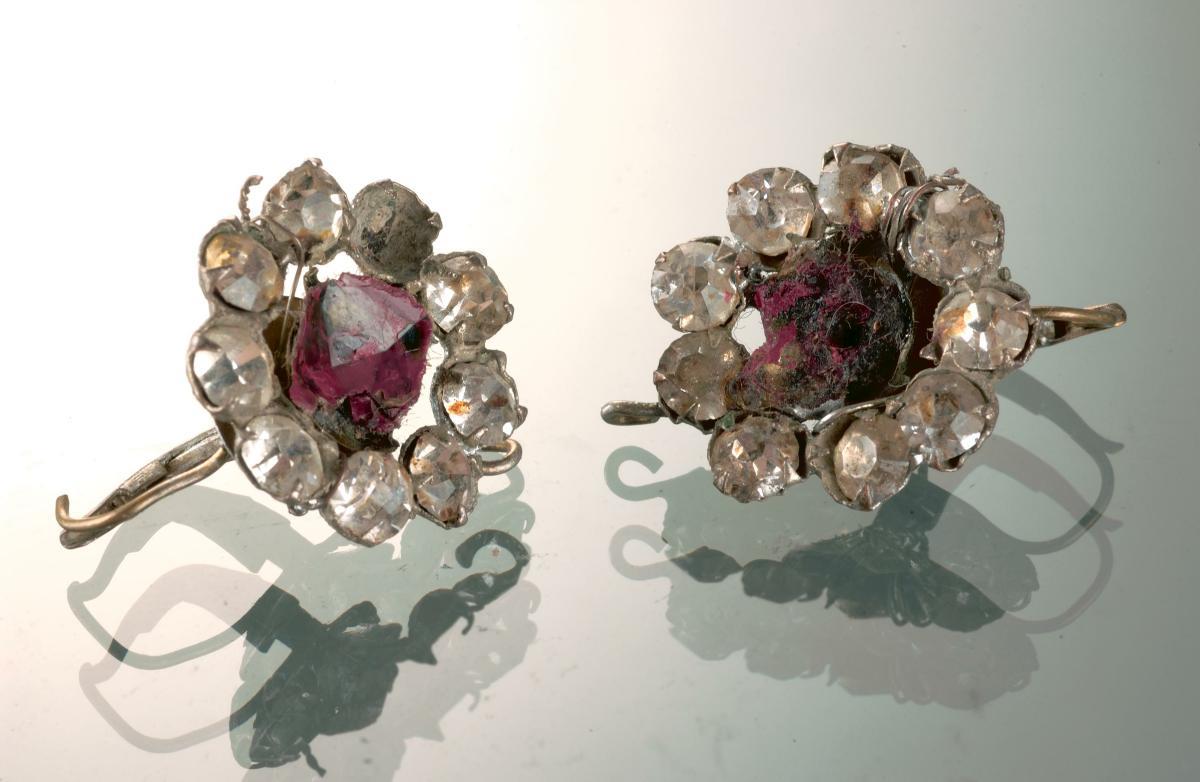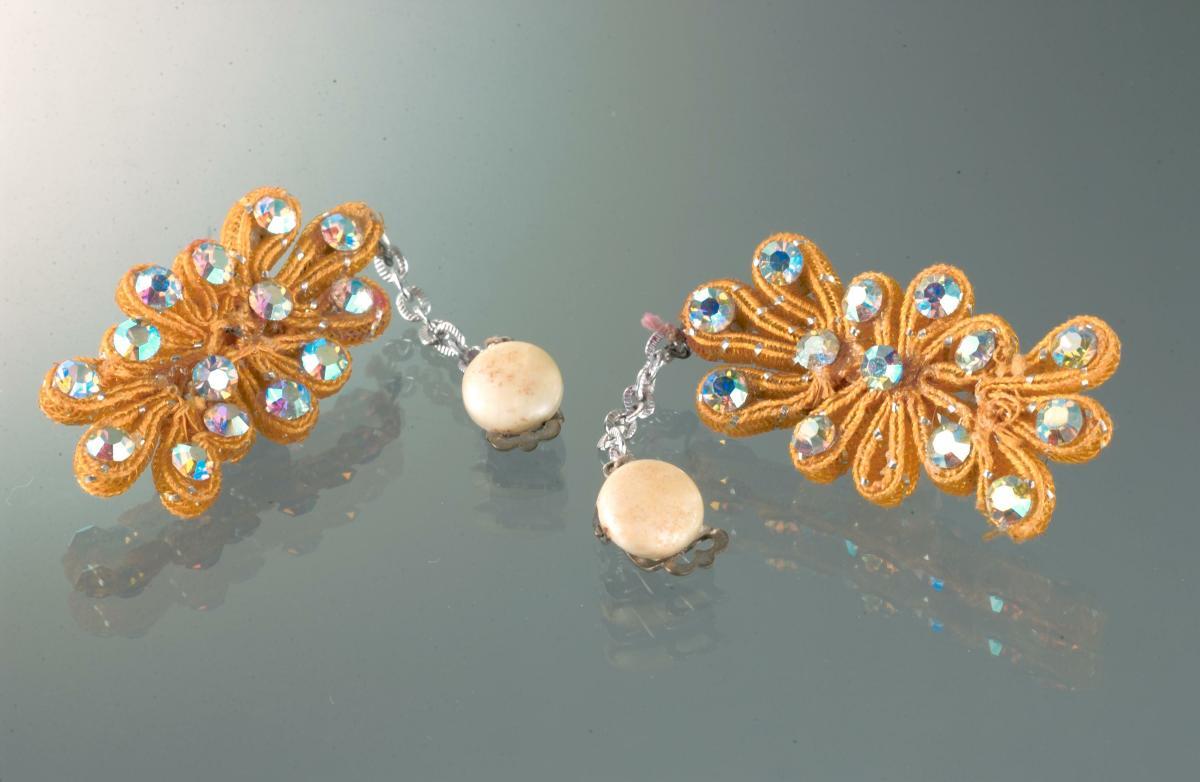This hair accessory belonged to the late Singaporean Cantonese opera artists, Mr. Liew Seng Wah and Mdm. Pak Choy Yoke. Mr. Liew was the founder of the now defunct opera company, Kwong Wah Dramatic Troupe. The couple were regional stars during their heyday in the 1930s to 1950s. As celebrated artists, their costumes and accessories were top of the line, with high quality workmanship and intricate designs. Chinese opera, or Chinese ‘wayang’, is a form of theatrical performance. Brought over by immigrants from southeast China to Singapore in the late 19th century, it is performed for both entertainment and religious purposes—both indoors and outdoors. Chinese ‘wayang’ was a popular form of entertainment in Singapore between the 1890s and the early 1930s. Its popularity waned drastically in the 1970s with the emergence of cinema and television. Nonetheless, it is still recognised in Singapore today as traditional culture and an art form.This pair of earrings belonged to late Singaporean Cantonese opera artists, Mr. Liew Seng Wah and Mdm. Pak Choy Yoke. Mr. Liew was the founder of the now defunct opera company, Kwong Wah Dramatic troupe. The couple were regional stars during their heyday in the 1930s to 1950s. As celebrated artists, their costumes and accessories were top of the line with high quality workmanship and intricate designs. Chinese opera, or Chinese ‘wayang’, is a form of theatrical performance. Brought over by immigrants from southeast China to Singapore in the late 19th century, it is performed for both entertainment and religious purposes—both indoors and outdoors. Chinese ‘wayang’ was a popular form of entertainment in Singapore between the 1890s and the early 1930s. Its popularity waned drastically in the 1970s with the emergence of cinema and television. Nonetheless, it is still recognised in Singapore today as traditional culture and an art form.








